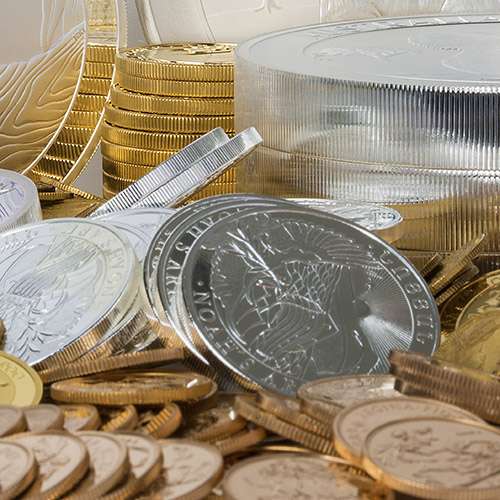Advancing a Circular Economy with Platinum
Synopsis
As the world strives to scale up technological solutions to tackle climate change, there is an increasing focus on ensuring that the production processes and supply chains for critical minerals are "circular". The circular economy aims to design products that are durable, repairable, and recyclable, maximising the reuse of materials and keeping them in circulation for as long as possible.
This approach reduces waste and reinforces the importance of managing impacts and consuming fewer resources to deliver sustainable outcomes, which lowers the demand for raw materials and the environmental impact associated with obtaining them.

Platinum as a Key Metal in the Energy Transition
Platinum is a key metal for the energy transition, especially for its use in hydrogen fuel cells and proton exchange membrane (PEM) electrolysers. Fortunately, platinum is already recycled, with around 25% of its annual supply coming from recycled autocatalysts (80%) and jewellery (20%). The autocatalyst recycling industry is highly mature, with over 90% of the platinum group metals in a used autocatalyst being recovered.
Recent Developments in Circularity
Recent developments show how circularity is being integrated into new hydrogen fuel cell and PEM electrolyser production capacity. Metal recovery and recycling plans are being built-in across the value chain, from design and production to installation and maintenance. For example, Johnson Matthey is partnering with Sinopec in China to explore circularity possibilities across green and blue hydrogen, fuel cells, decarbonisation technologies, and business opportunities.
BASF and Heraeus are also working together to promote circularity, by recycling spent catalysts in China to improve resource utilisation for high-tech and other companies that use precious metals. The recovered precious metals will be used to make new products for the automotive, chemical, electronics, and green hydrogen industries. These initiatives help to ensure a local supply of recycled precious metals for China.
Challenges in Europe
In Europe, where challenging green hydrogen production targets have been set to improve energy independence, Heraeus is collaborating with the German Federal Ministry of Education and Research to develop a recovery and recycling strategy for iridium and platinum in PEM electrolysers. There are specific challenges to be addressed, such as returning precious metal-containing end-of-life electrodes from PEM electrolysers and processing them into recyclable material at the necessary scale. Furthermore, the further separation and purification of iridium is highly complex, requiring specialised technologies to achieve the highest possible recovery.
Benefits of a Circular Economy
Heraeus's work illustrates how the circular economy can provide existing and new technology developers with reassurance about the long-term sustainability and security of platinum availability. The circular approach contributes to producers' efforts to improve sustainability and lower environmental impact, while allaying fears about the potential depletion of resources.
Circular Economy and Sustainability
Platinum plays a crucial role in the energy transition, particularly in hydrogen fuel cells and PEM electrolysers. The integration of circularity in the production process and supply chain ensures the long-term sustainability and security of platinum availability.
The benefits of a circular economy are reflected in the initiatives undertaken by Johnson Matthey, BASF, and Heraeus, promoting the recovery and recycling of precious metals, lowering environmental impact, and contributing to the improvement of sustainability. Despite the challenges in Europe, Heraeus's collaboration with the German Federal Ministry of Education and Research shows the potential for further development in the circular economy for critical minerals.
Related Articles
This guide and its content is copyright of Chard (1964) Ltd - © Chard (1964) Ltd 2024. All rights reserved. Any redistribution or reproduction of part or all of the contents in any form is prohibited.
We are not financial advisers and we would always recommend that you consult with one prior to making any investment decision.
You can read more about copyright or our advice disclaimer on these links.








